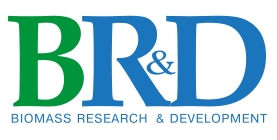The Sustainable Aviation Fuel Grand Challenge is the result of the U.S. Department of Energy (DOE), the U.S. Department of Transportation (DOT), the U.S. Department of Agriculture (USDA), and other federal government agencies working together to develop a comprehensive strategy for scaling up new technologies to produce sustainable aviation fuels (SAF) on a commercial scale. Discover the latest resources or tools to help learn about to the SAF Grand Challenge and sustainable aviation fuels.
Related Resources
ASCENT – The Aviation Sustainability Center
ASCENT is a cooperative aviation research organization co-led by Washington State University and the Massachusetts Institute of Technology. ASCENT is funded by the Federal Aviation Administration (FAA), National Aeronautics and Space Administration (NASA), the U.S. Department of Defense, Transport Canada, and the U.S. Environmental Protection Agency (EPA). The mission of ASCENT includes exploring ways to produce SAF at a commercial scale, creating an industry with the potential for large-scale economic development and job creation.
Commercial Aviation Alternative Fuels Initiative (CAAFI)
CAAFI is a coalition of airlines, aircraft and engine manufacturers, energy producers, researchers, international participants, and U.S. government agencies working together for the development and deployment of alternative jet fuels for commercial aviation. CAAFI is supported in part by the FAA Office of Environment and Energy.
Memorandum of Understanding (MOU) Sustainable Aviation Fuel Grand Challenge
Signed by the DOE, DOT, and USDA department secretaries in conjunction with the EPA, this MOU launched the government-wide SAF Grand Challenge.
United States 2021 Aviation Climate Action Plan
Published by the FAA, this report describes a government-wide approach to put the sector on a path toward achieving net-zero emissions by 2050. The plan builds on individual and sector-wide commitments announced by the U.S. aviation industry and highlights specific actions and policy measures to foster innovation and drive change across the entire U.S. aviation sector.
USDA Sustainable Agricultural Systems Coordinated Agriculture Projects
The USDA National Institute of Food and Agriculture Sustainable Agricultural Systems program area funds $10 million Coordinated Agricultural Projects to develop new or improved approaches for the production and manufacturing of clean energy, including SAF. Several regional bioenergy projects have developed feedstocks, such as winter oilseed crops and oilseed cover crops, which can be used for SAF production. These projects take systematic approaches to address regional biomass feedstock production, logistics, conversion technologies, and the analysis of impacts on agriculture and forestry markets, rural communities, and ecosystems.
Sustainable Aviation Fuel: Review of Technical Pathways Report (2020)
Part I of this DOE report provides an overview of commercial jet aviation fuel, including how it compares to fuels for cars and trucks, its composition, its specification, and its certification process. Part II provides insights resulting from a study of the aviation fuel industry, challenges of and successes with the approved pathways, and DOE Bioenergy Technologies Office capabilities and research and development portfolio. The insights focus on reducing cost and optimizing the value proposition for SAF.
Related Tools
DOE Alternative Fuels Data Center
The Alternative Fuels Data Center (AFDC) provides information, data, and tools to help fleets and other transportation decision makers find ways to reach their energy and economic goals using alternative and renewable fuels, advanced vehicles, and other fuel-saving measures. AFDC provides an overview of SAF production pathways.
Freight and Fuel Transportation Optimization Tool (FTOT)
This tool developed by the DOT Volpe Center is designed to analyze the transportation needs and constraints associated with fuel and raw material collection, processing, and distribution in the continental United States. FTOT can be used to explore SAF production and supply chain scenarios and how feedstock supplies can flow optimally over the transportation network.
